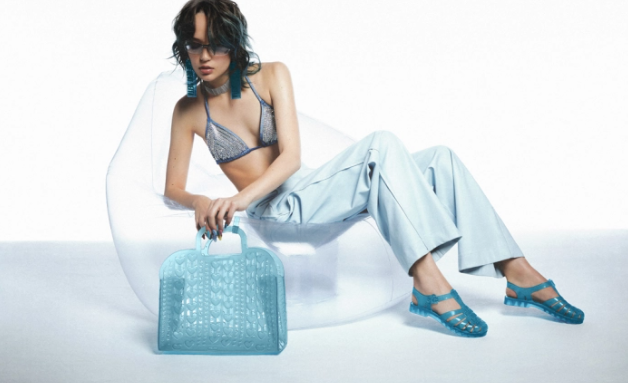Grendene CEO Talks New Growth Strategy for Melissa, Ipanema and More Brands
Brazilian sandal giant Grendene recently formed a joint venture with independent investment company 3G Radar to accelerate growth for its portfolio of footwear brands. The new entity, Grendene Global Brands, will draw on 3G Radar’s business management expertise and Grendene’s manufacturing capabilities, and handle the production and operations of eight staple brands: Melissa and Mini Melissa, Ipanema, Rider, Cartago, Zaxy, Grendha and Pega Forte.
Here, CEO Gustavo Assumpcao talks about his vision and expansion plans.

Since Grendene formed its joint venture with investment firm 3G Radar in 2021, what has been your No. 1 focus?
GA: “There’s a big expectation when this JV was formed. The idea was that we could be able to accelerate the growth rates for these brands in both the United States and China. We believe that our products and our brands have a point of differentiation that hasn’t been communicated with intensity to the consumers, so their growth expectations are very high. Last year, our e-comm business grew around 300% versus the previous year for Melissa. That’s the kind of growth that we would like to see. We need to deliver.”
Your background includes serving as president of AB Inbev, Mexico, plus 16 years at Anheuser Busch. How have these roles prepared you for the shoe industry?
GA: “Some of the fundamentals from the consumer side are the same — how to take care of a brand, how to build a brand, how to establish relationships with wholesalers, distributors, this is very similar to the previous world. But at the same time, a lot of things are totally different. I think it ends up being an advantage. Because if you’re an outsider, you need to surround yourself with people who really know the industry. And you need to let people work and do what they know. This is why focusing on building a great new team has been our focus since the beginning.”
Which of the Grendene labels are poised for the biggest growth this year and how will you execute this?
GA: “Melissa and Ipanema — for different reasons. Melissa has been a jewel and we are doing really well, so we are elevating the investments and the efforts behind the brand big time to grow on top of its solid base. Ipanema has been mute for a few years in the U.S. market, and we are bringing it back. We believe that in the long run, wholesale will continue to be our No. 1 channel. For Melissa, the U.S. wholesalers are the majority of the market and will continue to be. It is very important that we can be able to invest in these partnerships and support the digital activities in the wholesale chain. With Ipanema, the distribution was not there, so getting the distribution back is going to drive a lot of the growth for the brand. We have a big budget to support this growth and to make sure that we get a bigger chunk of the sales inside the chains where we are already present.”
What are your most important global markets?
GA: “U.S. and China. These two markets combined are 40% of the total footwear market, but only 4% of our revenue sales. We believe that the opportunity is unprecedented. Previously, we didn’t have the right structure and the right investments to explore the full potential. This is why we are now establishing this local presence in both the U.S. and China and searching for a deeper knowledge on the local consumers there and trying to have brands that are globally consistent, but locally relevant.”
What has been the greatest barrier for growth?
GA: “Stories that haven’t been told to the consumer with the intensity that they could have been. For instance, our sustainability story, people don’t know it. Also, if you think about Melissa, it’s almost a category of its own. There are not a lot of comparables. And whenever we talk to a Melissa consumer, the level of excitement for the brand is always high. We just don’t have enough people knowing the brand. So raising the brand awareness, telling stories that are more relevant — that’s what is going to drive the future growth.”
